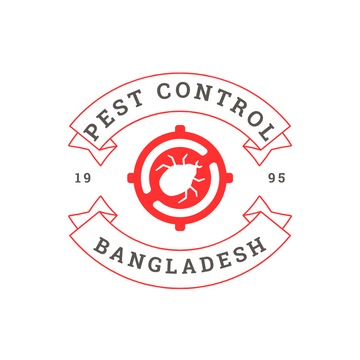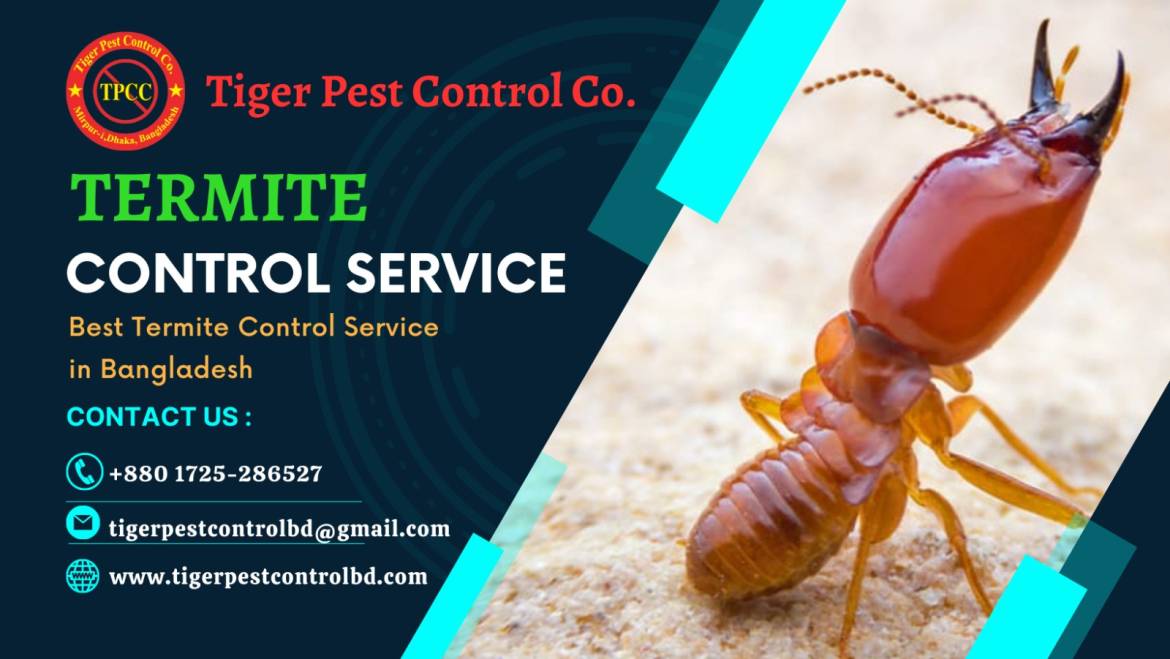Termite Control: Protect Your Home from these Silent Destroyers
Termites are among the most destructive pests that can invade your home, silently wreaking havoc on its structure and causing extensive damage. Protecting your property from termite infestations requires effective termite control measures. In this article, we will delve into the world of termite control, exploring various methods and strategies to keep your home termite-free.
Understanding Termite Control
Before we delve into the specifics of termite control, let’s first understand what termites are and why controlling them is essential.
What are termites?
Termites are small, social insects that feed on cellulose-rich materials such as wood. They form large colonies and work together to gather food, expand their nests, and reproduce. These pests can thrive in various climates and environments, making them a significant threat to homes and other structures.
The need for termite control
Termite infestations can have devastating consequences for homeowners. If left unchecked, termites can cause extensive damage to the structural integrity of a building, leading to costly repairs and compromises in safety. This makes termite control crucial to safeguard your investment and ensure the longevity of your property.
Common types of termites
There are several species of termites, but the most common ones that infest homes include:
- Subterranean Termites: These termites live underground and build mud tubes to access their food source, usually found in damp soil or wood.
- Drywood Termites: Unlike subterranean termites, drywood termites infest dry wood and don’t require contact with the soil to survive.
- Dampwood Termites: These termites prefer damp and decaying wood, often found in moist areas such as basements or areas with plumbing leaks.
Termite Control Methods
To combat termite infestations effectively, various termite control methods are available. Let’s explore some of the most commonly used approaches.
Chemical treatments
Chemical treatments involve the application of termiticides to create a barrier that prevents termites from entering the structure or eliminates existing colonies. Soil treatments, foam applications, and wood treatments are commonly used chemical methods for termite control.
Baiting systems
Baiting systems are an alternative to chemical treatments. These systems use bait stations strategically placed around the property to attract termites. Once the termites consume the bait, they carry it back to the colony, leading to its elimination.
Natural and organic solutions
For those seeking environmentally friendly termite control options, natural and organic solutions are available. These alternatives provide effective pest management without relying on harsh chemicals. Here are some natural and organic solutions for termite control:
- Nematodes: Nematodes are microscopic roundworms that are natural predators of termites. These beneficial organisms can be applied to the soil around your property, where they seek out and attack termite colonies, effectively reducing their population.
- Diatomaceous Earth: Diatomaceous earth is a powdery substance made from fossilized remains of diatoms. It is effective against various pests, including termites. When termites come into contact with diatomaceous earth, it damages their exoskeleton, leading to dehydration and ultimately their demise.
- Orange Oil: Orange oil contains a compound called d-limonene, which has insecticidal properties. It can be applied directly to termite-infested areas or injected into termite galleries to eliminate termites. Orange oil is a natural and eco-friendly option for localized termite control.
- Vinegar Solution: Vinegar is a readily available household item that can help repel termites. Create a solution by mixing equal parts of vinegar and water and spray it around areas prone to termite activity. While vinegar may not eliminate an existing infestation, it can act as a deterrent.
- Boric Acid: Boric acid is a natural insecticide that can be used for termite control. It disrupts the termites’ digestive system and ultimately leads to their demise. Apply boric acid powder to termite entry points or create bait stations using a mixture of boric acid, sugar, and water.
While natural and organic solutions can be effective for minor infestations or as preventive measures, they may not provide complete eradication of severe termite infestations. It’s important to assess the extent of the infestation and consult with a professional if the problem persists or worsens.
Termite Control: Protect Your Home from These Silent Destroyers
Termites are among the most destructive pests that can invade your home, silently wreaking havoc on its structure and causing extensive damage. Protecting your property from termite infestations requires effective termite control measures. In this article, we will delve into the world of termite control, exploring various methods and strategies to keep your home termite-free.
Understanding Termite Control
Before we delve into the specifics of termite control, let’s first understand what termites are and why controlling them is essential.
What are termites?
Termites are small, social insects that feed on cellulose-rich materials such as wood. They form large colonies and work together to gather food, expand their nests, and reproduce. These pests can thrive in various climates and environments, making them a significant threat to homes and other structures.
The need for termite control
Termite infestations can have devastating consequences for homeowners. If left unchecked, termites can cause extensive damage to the structural integrity of a building, leading to costly repairs and compromises in safety. This makes termite control crucial to safeguard your investment and ensure the longevity of your property.
Common types of termites
There are several species of termites, but the most common ones that infest homes include:
- Subterranean Termites: These termites live underground and build mud tubes to access their food source, usually found in damp soil or wood.
- Drywood Termites: Unlike subterranean termites, drywood termites infest dry wood and don’t require contact with the soil to survive.
- Dampwood Termites: These termites prefer damp and decaying wood, often found in moist areas such as basements or areas with plumbing leaks.
Termite Control Methods
To combat termite infestations effectively, various termite control methods are available. Let’s explore some of the most commonly used approaches.
Chemical treatments
Chemical treatments involve the application of termiticides to create a barrier that prevents termites from entering the structure or eliminates existing colonies. Soil treatments, foam applications, and wood treatments are commonly used chemical methods for termite control.
Baiting systems
Baiting systems are an alternative to chemical treatments. These systems use bait stations strategically placed around the property to attract termites. Once the termites consume the bait, they carry it back to the colony, leading to its elimination.
Natural and organic solutions
For those seeking environmentally friendly termite control options, natural and organic solutions are available. These include the use of nematodes, which are microscopic worms that feed on termites, or orange oil, which contains d-limonene, a substance toxic to termites. However, it’s important to note that natural solutions may not be as effective as chemical treatments for severe infestations.
Professional Termite Control Services
While DIY methods can be useful for minor termite issues, severe infestations often require the expertise of professional termite control services. Here are some benefits of hiring professionals for termite control:
- Experience and knowledge: Professional exterminators have extensive experience in dealing with termite infestations. They can accurately assess the severity of the problem and recommend the most suitable treatment options.
- Customized treatment plans: Professionals tailor their approach to the specific needs of your property. They consider factors such as the type of termites, the extent of the infestation, and the construction of your home to devise an effective treatment plan.
- Use of advanced techniques and tools: Termite control professionals have access to specializedequipment and tools that are not readily available to homeowners. These advanced techniques and tools allow for more precise and targeted termite control.
Inspection and assessment
One of the crucial steps in professional termite control is a thorough inspection of your property. Trained technicians will assess the extent of the infestation, identify the termite species present, and locate the entry points and areas of damage. This assessment helps in developing an effective treatment strategy.
Treatment options
Based on the inspection findings, termite control professionals will recommend the most appropriate treatment options for your specific situation. These may include a combination of chemical treatments, baiting systems, and ongoing monitoring to ensure long-term protection against termites.
DIY Termite Control Tips
While professional assistance is recommended for severe infestations, there are some preventive measures and DIY termite control tips you can implement to reduce the risk of termite damage. Here are a few:
Prevention measures
- Remove any wood debris or cellulose-rich materials near your home’s foundation.
- Ensure proper drainage and fix any plumbing leaks to eliminate moisture sources that attract termites.
- Seal cracks and gaps in your home’s exterior to prevent termites from entering.
- Trim vegetation and bushes away from the exterior walls to create a barrier against termites.
Home remedies for termite control
While home remedies may not be as effective as professional treatments, they can serve as temporary solutions for minor infestations. Some common home remedies for termite control include:
- Applying a mixture of vinegar and water to termite-infested areas.
- Sprinkling boric acid around termite entry points.
- Using orange oil directly on termite galleries.
Remember that these home remedies may not completely eradicate the infestation and should be used in conjunction with professional termite control methods for optimal results.
FAQs about Termite Control
What is termite control treatment?
Termite control treatment refers to the various methods and techniques used to prevent, eliminate, or manage termite infestations. These treatments can include chemical applications, baiting systems, or natural solutions, depending on the severity of the infestation and the preferences of the homeowner.
What is best for termite control?
The best termite control method depends on the specific circumstances of the infestation. Professional termite control services are often the most effective, as they can tailor their approach to your property’s needs. Chemical treatments and baiting systems are commonly used and have proven to be successful in controlling termite populations.
How do I get rid of termites permanently?
Getting rid of termites permanently can be challenging, but with the right approach, it’s possible to manage and control their presence. Hiring professional termite control services, implementing preventive measures, and maintaining regular inspections can help prevent future infestations and minimize the risk of termite damage.
What kills termites naturally?
Several natural remedies can help deter termites or reduce their populations. These include the use of nematodes, diatomaceous earth, neem oil, or orange oil. However, it’s important to note that natural remedies may not be as effective as chemical treatments for severe infestations and professional advice should be sought.
Conclusion
Protecting your home from termite infestations is crucial to maintain its structural integrity and prevent costly damage. Understanding the nature of termites, implementing preventive measures, and seeking professional termite control services when necessary can help ensure a termite-free environment. Remember to stay vigilant, conduct regular inspections, and address any signs of termite activity promptly.


